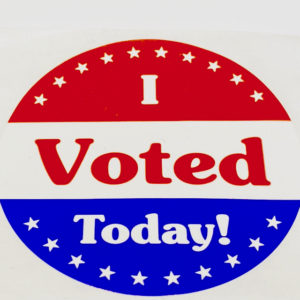As my client, I recommend that the most viable, impactful intention for corporations and corporate leaders is to be the champion of stakeholders’ rights — and I mean not just shareholders’ rights, and not just your own personal rights. Today there is a prominent, non-partisan example: At the core of human rights in America is the free and unimpeded right to vote for every eligible citizen.
I believe it is imperative for CEOs and other executive leaders to be clear and on the record as champions of core human values and principles that rise far above partisan politics.The truly frightening fact is that some in executive authority seem flummoxed by this responsibility to take a stand for fundamental, non-partisan, human (i.e., stakeholder) rights. Such confusion undermines capitalism.
This human rights issue about unimpeded voting for eligible citizens is so clear that it offers a significant opportunity for boards and C-suites to debate and emerge with more insightful authentic leadership.
As you have pointed out, many struggle with the challenge of championing higher principles. What a great opportunity to show up to do the right thing! It is but one higher principle, yet it is very timely. At the core of human rights in America is the free and unimpeded right to vote.
I believe the central problem that you cite in your company is a lack of an authentic leadership perspective shared among the board and C-suite — reducing all controversies to tactical arguments unguided by higher principles. What you are finding obstructive is a self-absorbed perspective, not a leadership perspective. It is very common for the self-absorbed mindset to occupy authority today, generally without accountability. Today, “leadership” is immoderately prejudiced by authority. The self-absorbed executive is concerned about maximizing personal gain and personal status without concern for anyone else’s cost. That self-absorption steals from the wise discernment to associate with higher performance principles.
Haven’t you seen that when self-absorbed authority enters the proverbial “leadership” room, they mutter about complexity and inconvenience? Supporting voters’ rights is pretty simple but not convenient when it is not recognized as a basic principle. American Independence, the American Revolution, was forged by authentic leaders — pragmatic idealists — not self-absorbed individuals intent on maximizing their personal wealth.
Inconvenient, not convenient, when not discerned. Some issues deserve reckoning. I would suggest that corporate support of universal voting rights is such a principled issue.
You confided some time ago that you sometimes feel you are in the wrong company. I said if that is so, it’s because your board has appeared to be incapable of doing the right thing. It seems to lack wise discernment, yet the irony is that wise discernment characterizes you! Let’s find more effective ways to help them identify with higher principles.
According to The Wall Street Journal, more than 300 companies, CEOs, and other executives signed on to a statement that appeared as an advertisement in The Wall Street Journal, the New York Times, and other publications on 14 April 2021. Some of the companies whose executives have spoken out in favor of the unimpeded right of eligible citizens to vote: Amazon, AFLAC, American Express, Apple, Bank of America, BlackRock, Business Roundtable, Cardinal Health, Cisco, Citigroup, Coca-Cola, Delta Airlines, Facebook, Google, Home Depot, Mailchimp, Merck, Microsoft, Netflix, and Patagonia.
“There is overwhelming support in corporate America for this principle of voting rights,” said Kenneth Chenault, the former chief executive of American Express Co. “The right to vote is fundamental to America. It is not a partisan issue.”
My focus always is intended to be about authentic leadership and organizational brilliance, not partisan politics. You will note that I did not mention divisive tactical actions. Here, I advised strategically. My point coincides with the strategic advice of the executives who signed the statement.
Rising above partisan politics, the statement calls voting the “most basic and fundamental right,” one [that] has been denied to many throughout the nation’s history. “We all should feel a responsibility to defend the right to vote and to oppose any discriminatory legislation or measures that restrict or prevent any eligible voter from having an equal and fair opportunity to cast a ballot.”
I believe voter eligibility is essential, as is having a valid license to drive an automobile. When it comes to tactical measures, establishing voter eligibility can be done facilitatively, on the one hand, or obstructively, on the other. I believe the strategic principle, supporting measures that facilitate any eligible voter in having an equal and fair opportunity to cast a ballot, is fundamental and non-partisan. But it requires sensitive leadership.
This topic about voter rights presents a new challenge for your influence. You have earned a reputation as an authentic leader. I believe this is due to your wise discernment, your respectful style, and your persistence in clearly identifying with the higher principle, even when others appear reluctant or confused. Yet, as you stated, “the times, are certainly changing,” and your group facilitation skills are primary assets, encouraging consequential conversations, discouraging sycophancy, and building trust around high mutual purposes.
We’ve laughed at the notion that the CEO job is easy, and you’ve remarked that it’s only easy to be ineffective. No truer words …!
Today, the evidence is that you must lead more clearly, and perhaps more assertively not only with groups but with individuals — your board members and C-suite members — if you are to raise the collaboration, build consensus, and have the impact you seek. So, now let’s consider new ways of communicating more effectively!
With best regards,
Bruce

